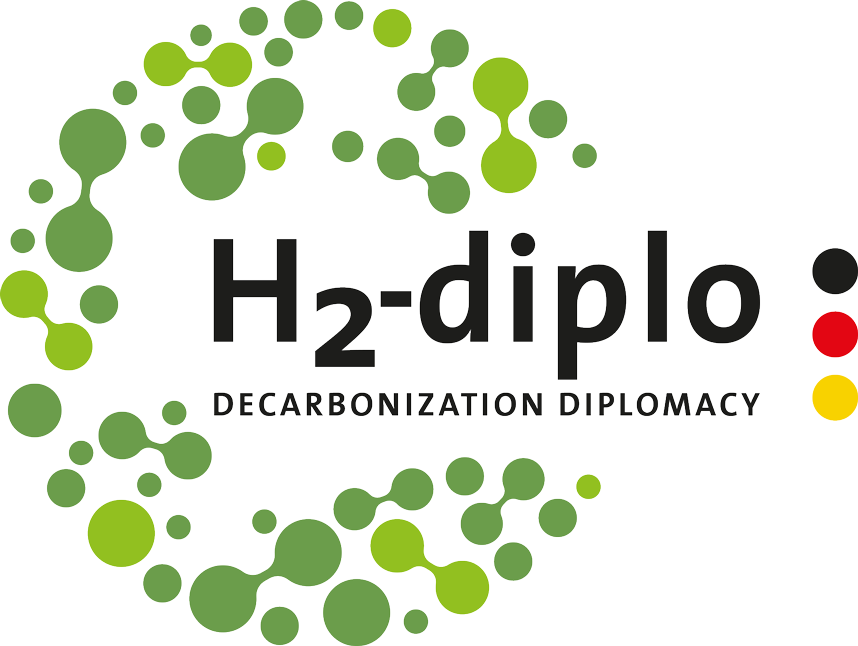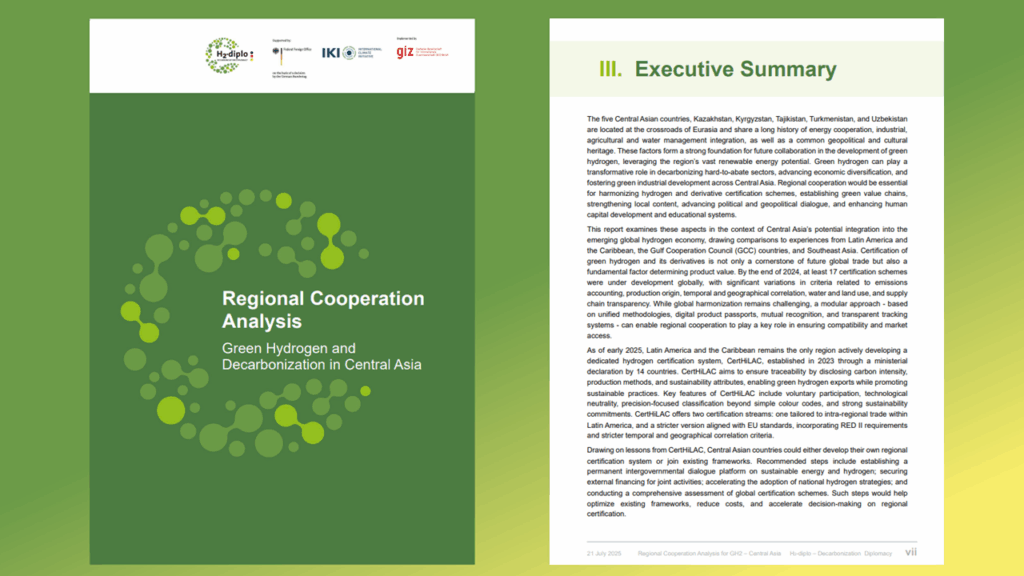The new study “Green Hydrogen and Regional Cooperation in Central Asia”, published by H2-diplo, offers a comprehensive assessment of the opportunities and challenges for green hydrogen development in Central Asia. It highlights how regional integration and joint action can unlock the transformative potential of green hydrogen for decarbonisation, economic diversification, and industrial development.
Despite abundant solar and wind potential, renewable energy represented just 2% of electricity generation in Central Asia in 2022. Unlocking this potential will require not only large-scale investment in renewable power and infrastructure, but also close coordination between Kazakhstan, Kyrgyzstan, Tajikistan, Turkmenistan, and Uzbekistan.
The study argues that regional cooperation is essential for building compatible certification schemes for hydrogen and its derivatives, enabling cross-border infrastructure planning, improving access to finance, and aligning educational and workforce strategies. It draws on lessons from other regional initiatives such as CertHiLAC in Latin America and highlights the need for a modular approach to certification – including digital product passports, mutual recognition, and transparent tracking systems.
At the same time, the report points to the need for green hydrogen strategies that go beyond exports. While major projects like Hyrasia One aim to supply green ammonia to Europe, significant potential also exists to decarbonise domestic industries such as fertiliser production, steelmaking, and refining. Repurposing existing natural gas infrastructure and investment in coordinating water and energy demands will be key to scaling green hydrogen in a resource-constrained region.
Finally, the report identifies the importance of investing in human capital. Despite growing political support for carbon neutrality, most Central Asian countries face significant gaps in hydrogen-related research, technical education, and industry. University cooperation, targeted programs, regional training centres, and academic exchange are highlighted as critical to ensure the availability of a skilled workforce.
By mapping out key priorities from certification and infrastructure to education and trade, the study provides a roadmap for joint action and supports the region’s integration into the global hydrogen economy.
Download the full study here.
For more news about the H2-diplo activities, follow us on LinkedIn: H2-diplo – Decarbonization Diplomacy | LinkedIn

